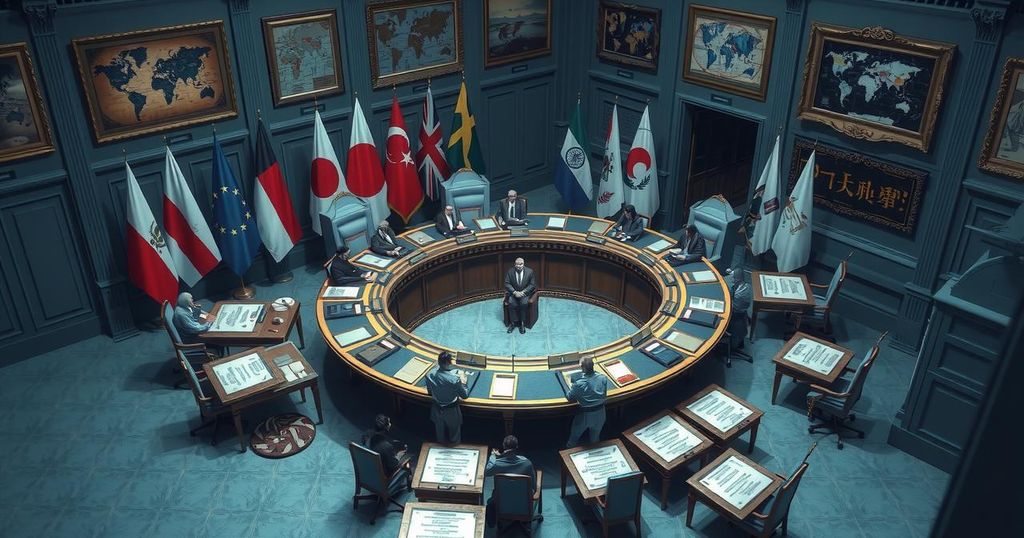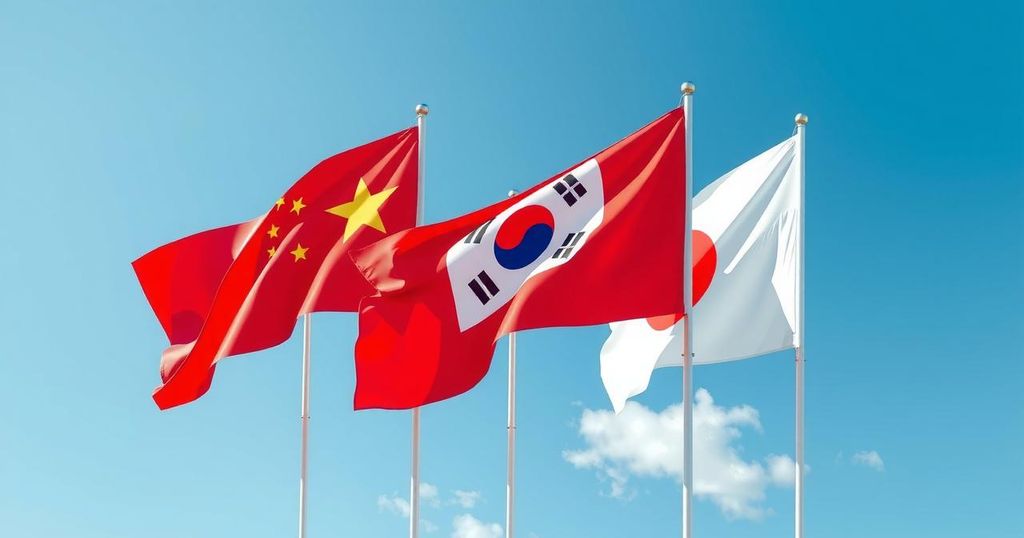China’s Evolving Diplomacy in the Middle East: A Response to the Gaza Conflict
China’s Middle East policy is undergoing a significant transformation in response to the Gaza war, moving from a hedging strategy focused on economic benefits to a proactive diplomatic approach. This change is characterized by a commitment to regional stability, strategic partnerships, and support for Palestinian rights, necessitating a re-evaluation of its role amid shifting geopolitical landscapes.
For nearly twenty years, China’s Middle East policy has focused on maximizing economic benefits while minimizing political risks. However, the ongoing Gaza conflict necessitates a reassessment of China’s diplomatic strategy in the region, as the shifting power dynamics demand a more assertive role from Beijing.
Chinese Foreign Minister Wang Yi recently emphasized, at a UN function, that the resolution of the Palestinian issue is central to achieving stability in the Middle East. He remarked that without a solution founded on a two-state framework, regional peace and security remain at significant risk.
The previous Chinese strategy of “hedging”—avoiding offense to any party—has become untenable. This approach allowed China to foster extensive economic ties and build major initiatives such as the Belt and Road Initiative and the Digital Silk Road, aligning with Gulf states’ goals for digital growth as outlined in their Vision documents.
In the face of regional turmoil, China’s foreign policy has grown proactive. This evolution includes a commitment to “quasi-mediation diplomacy” characterized by broadening its role in both political and security domains. This approach is underpinned by a “zero-enemy policy,” which has led to strategic partnerships and multilateral dialogues with significant regional players.
Recent agreements with Middle Eastern nations demonstrate China’s intent to deepen its ties, including a 25-year cooperation pact with Iran, a Saudi-Iran reconciliation, and accords involving Palestinian factions. However, the Gaza conflict has necessitated a re-evaluation of these relationships and China’s broader diplomatic strategy.
Significant changes following the Gaza war include a militarily dominant Israel with expansive territorial ambitions, a weakened Iran, unwavering U.S. support for Israeli ambitions, and setbacks to Palestinian statehood aspirations. These developments compel China to adopt a responsible diplomatic role to safeguard its interests against U.S.-Israeli dominance in the region.
Former U.S. President Donald Trump’s administration complicated matters with aggressive rhetoric that favored Israeli positions while aligning against Iranian influence. Trump’s “America First” policy highlighted the U.S. disposition towards countering China’s influence in the region.
Although some Chinese analysts previously suggested that U.S. and Chinese interests in regional security were aligned, the current realities indicate a growing divergence. Chinese engagements in the Middle East must now contend with the perception of China as a rival by both the U.S. and Israel, particularly regarding China’s support for Iran and its neutrality toward Houthi attacks.
Looking ahead, it is anticipated that the U.S. will revive a stringent stance towards Iran while pushing for deeper normalization between GCC states and Israel, jeopardizing Gulf autonomy and requiring them to pivot away from China.
To navigate these complexities, China must look beyond its previous passive strategies and develop a multifaceted approach that aligns with Gulf states’ security aspirations while advocating for Palestinian rights and reconstruction efforts. This includes reinforcing energy ties with Saudi Arabia and promoting cooperative dynamics within the GCC and Iran.
Such a strategy necessitates a significant shift from China’s prior non-involvement stance. Historically criticized as a “free rider,” China’s growing active engagement can bolster its influence and secure its strategic interests, which is essential for supporting a multipolar world order.
In conclusion, the Gaza war has prompted a crucial reassessment of China’s Middle East policy. As regional dynamics shift, China must adopt a more active role to protect its interests and engage constructively with key players in the region, particularly regarding Palestinian issues. This involves strengthening partnerships with Gulf states, promoting stability, and redefining its diplomatic posture to ensure resilience against U.S.-Israeli hegemony.
Original Source: www.arabnews.com








Post Comment